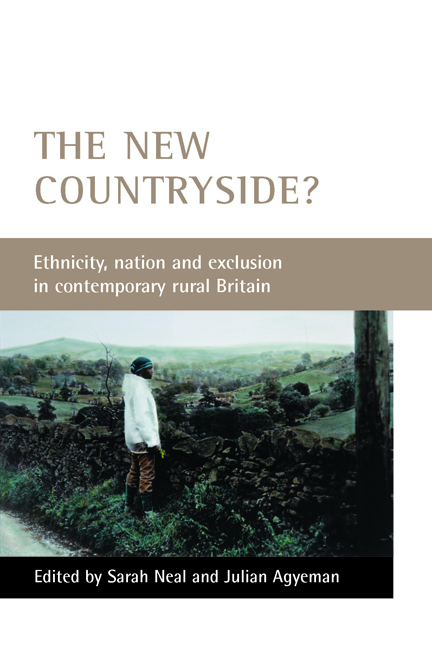seven - Visions of England: New Age Travellers and the idea of ethnicity
Published online by Cambridge University Press: 18 January 2022
Summary
Introduction
This chapter consists of reprinted material from Kevin Hetherington's book New Age travellers, vanloads of uproarious humanity (2000). Drawn from two chapters, the edited extracts presented here scrutinise the particular formations of New Age Traveller identities in Britain in the 1980s and 1990s. Hetherington examines the processes of these identity constructions and in doing so reveals how notions of ethnicity, class and rurality are redrawn and intersect to produce a very different narrative of belonging to, and desiring to be in, rural spaces. It is a narrative that incorporates processes of bricolage and performativity and privileges the countryside as the terrain in which these take place. However, in this narrative the countryside is more than simply the place in which composites of identities are rejected and remade. The countryside is itself at the heart of the identity-formation process. But this is not a countryside that corresponds with the dominant, (secondspace) rural imaginary. Rather it is a countryside that is interpreted as a space of freedom and resistance.
Authenticity, ethnicity and identity
In fixing a sense of self-recognition, belonging and membership, identities are about trying to simplify what is often a much more complex set of relations. Identities are never singular. More often they contain a mix of different identity positions that have developed a sense of unity over time (Hall, 1990, 1992, 1996). New Age Travellers are no exception. When they form their identity they do so by identifying with a series of other identities, some of which they see in a positive way and others more negatively. The choice of identities with which they associate themselves is not, however, a random one. Their identity can be seen as hybrid, similar to a collage in appearance, but one that is organised around an identification with others who have in some way come to be associated with the ideas of authenticity and marginality. In particular, Travellers adopt an identity that brings together a series of disparate ‘ethnic’ identities that share one thing in common: their marginalised and often oppressed status within society.
An important source of identity for Travellers is that associated with nomadism; in particular they draw on identities linked with what they perceive to be a traditional Gypsy way of life (Okely, 1983).
- Type
- Chapter
- Information
- The New Countryside?Ethnicity, Nation and Exclusion in Contemporary Rural Britain, pp. 173 - 192Publisher: Bristol University PressPrint publication year: 2006

